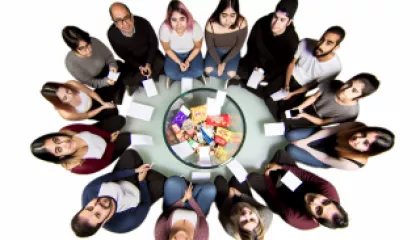Willkommen! Mein Name ist Phatyrut Schmidt, und ich freue mich, Ihnen bei Ihren persönlichen Herausforderungen behilflich zu sein. Als erfahrener Therapeut habe ich über ein Jahrzehnt damit verbracht, tiefes Wissen und praktische Fertigkeiten im Bereich der Psychologie zu erwerben, insbesondere in den Bereichen Adoleszenzprobleme und Umgang mit toxischen Beziehungen.
In meiner Arbeit widme ich mich dem Verständnis und der Unterstützung von Jugendlichen, die auf der Suche nach ihrer Identität und ihrem Platz in der Welt sind. Die Adoleszenz ist eine Zeit intensiver Veränderungen, und es kann eine Herausforderung sein, diese Phase selbstbewusst zu durchlaufen. Ich biete einen sicheren Raum, um Ängste und Sorgen zu erkunden und arbeite gemeinsam mit Ihnen daran, Strategien zur Bewältigung dieser einzigartigen Lebensphase zu entwickeln.
Ein weiteres zentrales Thema meiner Praxis ist der Umgang mit toxischen Beziehungen. Diese Verbindungen können uns emotional belasten und unser Wohlbefinden erheblich beeinträchtigen. Mit meiner Unterstützung lernen Sie, solche Beziehungen zu erkennen, und wir erarbeiten gemeinsam Wege, um gesunde Grenzen zu setzen und Selbstachtung zu fördern. Es ist mir ein Anliegen, Ihnen Werkzeuge an die Hand zu geben, die Ihre emotionale Resilienz stärken und Ihr Leben bereichern.
Ich nehme eine wissenschaftlich fundierte und zugleich einfühlsame Herangehensweise, um meine Klienten zu unterstützen. Meine Methoden basieren auf aktuellen psychologischen Erkenntnissen und bewährten therapeutischen Ansätzen. Dabei ist es mir wichtig, stets individuell auf die Bedürfnisse meiner Klienten einzugehen und maßgeschneiderte Lösungen zu entwickeln, die sowohl effektiv als auch nachhaltig sind.
Als Österreicher mit einer Vorliebe für tiefgründige Gespräche schätze ich die Bedeutung von Kommunikation in der Therapie. Ich lade Sie ein, Ihre Gedanken und Gefühle offen mit mir zu teilen, damit wir gemeinsam an Ihrer persönlichen Entwicklung arbeiten können. Durch einen respektvollen und konstruktiven Dialog schaffen wir die Voraussetzungen für positive Veränderung und Wachstum.
Ich bin überzeugt davon, dass jeder Mensch das Potenzial hat, sich selbst zu verwirklichen und ein erfülltes Leben zu führen. Ob Sie sich in einer schwierigen Lebenssituation befinden oder einfach nur Klarheit über Ihre nächsten Schritte gewinnen möchten, ich stehe Ihnen zur Seite, um dieses Ziel zu erreichen. Lassen Sie uns gemeinsam die Reise zu einem besseren Verständnis Ihrer selbst und Ihrer Beziehungen beginnen.
Ich freue mich darauf, Sie kennenzulernen und Sie auf Ihrem Weg zu unterstützen. Buchen Sie noch heute eine Sitzung mit mir auf Therapeak und lassen Sie uns zusammen daran arbeiten, Ihre Lebensqualität zu verbessern und Ihr volles Potenzial zu entfalten.

